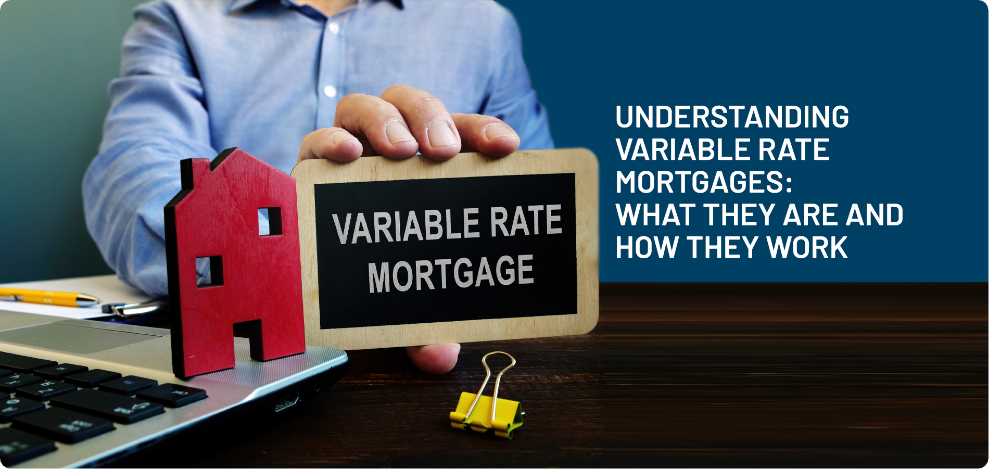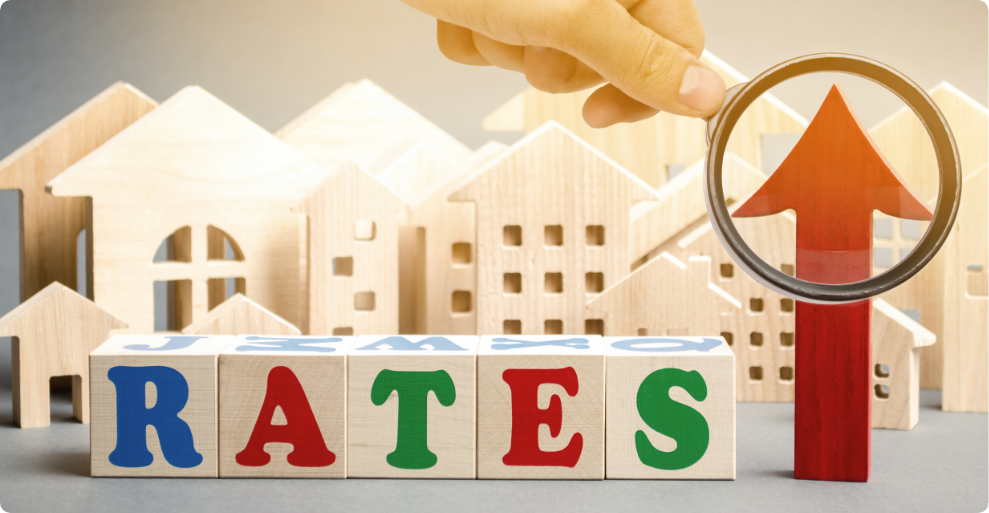Blog Search
Understanding Variable Rate Mortgages: What They Are and How They Work

Let’s start with the basics; what is a variable rate mortgage?
A variable-rate mortgage is a type of home loan where the interest rate can change over time. This means that the amount you pay towards the interest and the amount you pay towards the principal (the amount you borrowed) can also change when you pay it back to your traditional or private lender in Ontario
If the interest rate goes up, a larger portion of your mortgage payment will go towards paying off the interest, leaving less to pay off the principal. On the other hand, if the interest rate goes down, a smaller portion of your payment will go towards paying off the interest, leaving more to pay off the principal.
So, with a variable rate mortgage, you may end up paying more or less towards the principal of your mortgage depending on how the interest rate changes over time.
For example
Let's say that you borrow $200 from your friend and agree to pay back the loan in 10 months with an interest rate of 5%. This means that you will have to pay a total of $210 - $200 for the loan and $10 for interest. If you make equal monthly payments, you will pay $21 per month ($210 total / 10 months).
Now, let's say that after 5 months, your friend decides to increase the interest rate to 6%. With an adjustable-rate loan, your monthly payment would increase to $22.10 ($221 total / 10 months), and the amount that goes towards paying off the principal of the loan would stay the same.
However, with a variable rate loan, your monthly payment would stay the same at $21, but the portion of your payment that goes towards paying off the principal would decrease to $20.80. This means that it would take you longer to pay off the loan to a lender in Ontario, and you would end up paying more interest over time.

Alright in that case why should I choose variable-rate mortgage?
Choosing a variable-rate mortgage can have both advantages and disadvantages, and whether it’s right for you depends on your personal financial situation and risk tolerance.
One advantage of a variable-rate mortgage is that if interest rates go down, your monthly payment will decrease, which can be beneficial for your cash flow. This can give you the flexibility to allocate more funds towards other expenses or investments.
Another advantage is that variable-rate mortgages typically come with lower interest rates than fixed-rate mortgages. This means that you could potentially save money on interest over the life of the loan, assuming interest rates do not rise too high, especially when refinancing a mortgage in Canada.
However, a major disadvantage of a variable-rate mortgage is that your monthly payment could increase if interest rates rise. This can put a strain on your budget and make it difficult to plan your finance. Additionally, since the interest rate is not fixed, it can be more difficult to predict and budget for your monthly expenses in the long term.
Ultimately, the decision to choose a variable-rate mortgage should be based on your individual financial circumstances and outlook for interest rates. It's essential to carefully consider the pros and cons before making a decision and speak with any of the many traditional or private lenders in Ontario.
Is now a good time to choose a variable-rate mortgage?
Before we tackle the answer to this question, let’s look at some facts regarding the current state of the Canadian real estate market.
1- The current interest rate in Canada is 4.5% which is almost double of what it was 2 years ago and one of the highest rates of interest in the last decade or so.
2- It is unlikely that the rate of interest will increase any further as the Bank of Canada themselves have assured that they are going to hold off on rate hikes.
3- The Canadian Home has published many market reports over the past couple of months which clearly show that Canadian real estate is in the process of a full recovery. This means demand and supply will break even eventually, and finally, the rate of interest will begin to fall.

As an aspiring home buyer, if you consider your decision by keeping the above points in mind, then choosing a variable-rate mortgage is simply the most logical. It will not lock you on a high rate of interest, unlike a fixed-rate mortgage which will push you to refinance your mortgage when the rates do fall. When the interest rates go down in the future, which they surely will, you will be able to reap the benefits. If you time your mortgage payments just right and make aggressive payments during that time, then you could potentially pay off your mortgage faster and save a significant amount of money on interest payments over the life of the loan.
You can always contact us
There are no absolutes in the world of Real estate. What works today might not work tomorrow; what worked for me might not work for you. At the end of the day, we are all individuals with unique circumstances that drive our decisions. At The Canadian Home, we understand this and that is why the best course of action for you as a first home buyer would be to get in touch with our experts. Equipped with 6 million properties, and real-time updates on both the properties and the market condition, our experts will make it easier than ever for you to find your dream home and make an informed decision that you'll be confident in for years to come.
Blog Search
Popular Blogs
Popular Blogs
The trademarks MLS®, Multiple Listing Service® and the associated logos identify professional services rendered by REALTOR® members of CREA to effect the purchase, sale and lease of real estate as part of a cooperative selling system.

